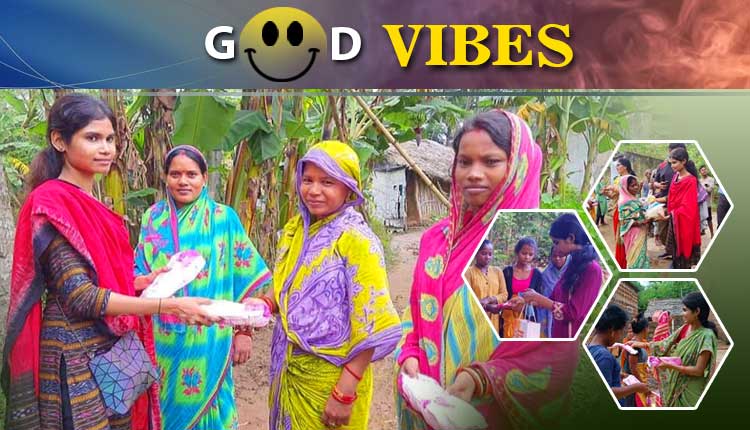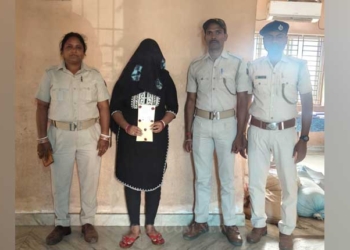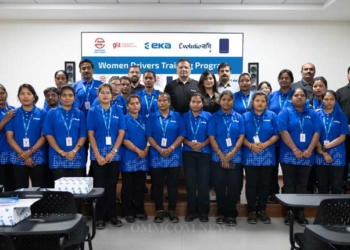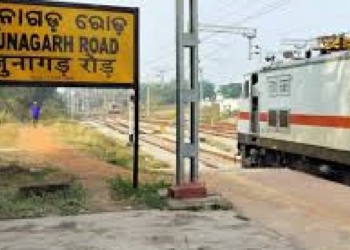Bhubaneswar: Most women menstruate every month for about two to seven days. So, menstruation is a natural and biological process experienced by adolescent girls and women. Yet, menstruation is stigmatized and has always been surrounded by taboos and myths, especially in rural areas. Menstrual hygiene is still a neglected issue in rural India. Lack of menstrual hygiene in village women make them susceptible to various morbidities such as reproductive tract infection, urinary tract infection, cervical cancer, infertility, and ectopic pregnancy. Concerned over it, Dhenkanal-based Ankita Sahoo has been creating awareness about menstrual hygiene among women residing in villages and distributing free sanitary napkins to them.
Popular as Padwoman of Odisha, Ankita has been sensitising people over menstrual hygiene in more than 700 villages and 100 schools for the last 12 years. So far, Ankita, who is a documentary filmmaker and journalist, has distributed over 1 lakh sanitary napkins among the needy. In a tete-a-tete with Ommcom News, Ankita talks about her journey so far.
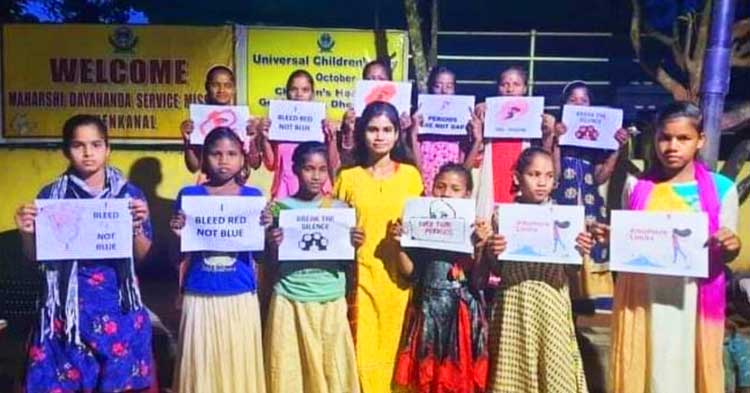
Recollecting her initial days, she said, “When I was pursuing graduation in Journalism and Mass Communication at IMC Dhenkanal, I used to write on women health. It was then I learnt that village women lack basic information on menstrual hygiene. They use old clothes as absorbents during menstruation. This is largely due to lack of awareness regarding clean absorbents. Besides, women wash their cloth absorbents in night and dry them indoors to avoid prying eyes. Also, they feel shame to talk about it even if with their husbands. Also, they hesitate to consult doctors when they suffer diseases related to menstruation. So, I decided to create awareness among the village women and girl students about menstrual hygiene and educate them.”
Not only she distributes napkin pads every month from her own pocket, Dhenkanal-born Ankita also arranges several workshops regarding menstrual hygiene.
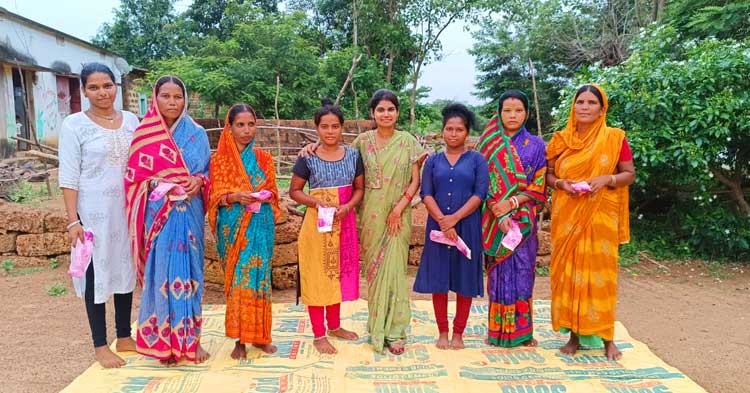
“Though the Odisha government is providing free sanitary pads to girl students and women in rural pockets, people residing there have no idea about it. During my visit to a village in Koraput, I was taken aback to know that they were completely clueless about pads. I was amazed after knowing that none of them had ever used a pad. When I tried to explain the necessity of pad in a woman’s life, their husbands and in-laws forcibly took them away from the venue and used derogatory words for me”, said Ankita when asked about her painful memory of her life.
She has also earned for distributing pads to women in flood-affected villages.
“I visited the flood-affected Delang area to distribute pads to women. There were many organizations distributing relief materials. But I was the one who was distributing pads. I could not forget the smiles on the face of women when they saw sanitary napkins in my hands”, said Ankita smilingly.
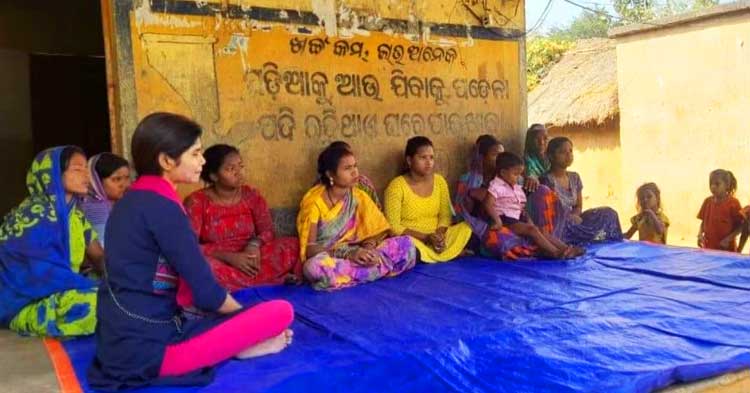
Despite getting married, she makes sure to visit villages and sensitise women on a regular basis.
Ankita feels that many women of tribal hamlets can’t afford to buy sanitary pads. “Being responsible citizens, we have to do our bit by donating a small portion for the noble cause. Besides, we should talk about menstruation with pride not with shame. So, let’s take pride in period”, signed off Ankita.
By Rashmi Rekha Das




